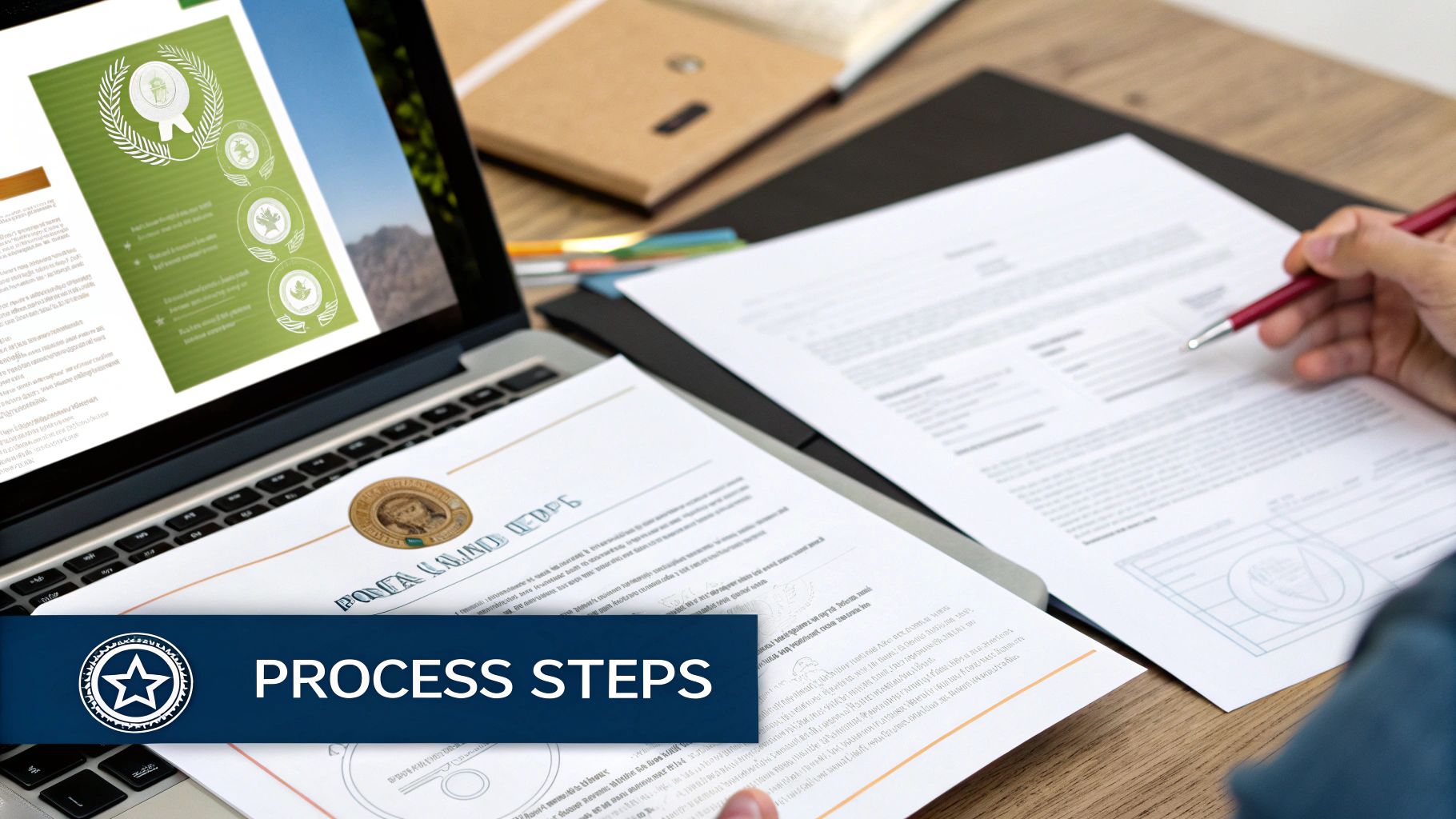Navigating the HR Certification Landscape

Feeling overwhelmed by the sheer number of HR certifications out there? You’re not alone. This guide will illuminate the path forward, focusing on key certifications like SHRM-CP, SHRM-SCP, PHR, and SPHR. Choosing the right certification is a pivotal decision in your HR career. It’s about understanding which certification best aligns with your current experience level and your aspirations for the future. For example, some certifications are ideal for those just starting out, while others are designed for seasoned HR leaders.
The journey to becoming a certified HR professional also requires a careful assessment of your return on investment (ROI). This means considering how each certification could potentially impact your career progression, salary expectations, and overall recognition within the HR community. Earning an HR certification is a powerful step towards building credibility and enhancing your skillset. In 2023, the Society for Human Resource Management (SHRM) celebrated a milestone, surpassing 135,000 certified professionals. This remarkable achievement underscores the increasing value placed on HR certifications. SHRM certifications are highly regarded for their practical application in everyday HR tasks, with eight out of ten aspiring certificants opting for SHRM over other providers. Find more detailed statistics here. Understanding the specific requirements of each certification will empower you to make the best choice for your career.
Understanding the Key Players: SHRM, HRCI, and Others
The world of HR certifications features a diverse array of respected organizations. The Society for Human Resource Management (SHRM) offers the SHRM-CP and SHRM-SCP credentials, emphasizing competency-based skills and knowledge. The HR Certification Institute (HRCI) is another leading provider, offering certifications such as the PHR and SPHR, which focus on technical HR knowledge and expertise. Other organizations, like WorldatWork and the Talent Management Institute (TMI), offer specialized certifications. These focus on specific areas like compensation and benefits and talent management. This variety ensures there are options available for HR professionals at every stage, from entry-level to executive, and across all specializations. However, navigating this landscape effectively requires clarity about your personal career goals.
To help you make an informed decision, we’ve compiled a comparison of some of the most popular HR certifications:
Comparison of Major HR Certifications
Side-by-side comparison of different HR certifications including requirements, costs, and focus areas
| Certification | Provider | Experience Required | Exam Fee | Focus Areas | Recertification |
|---|---|---|---|---|---|
| SHRM-CP | SHRM | Varies based on education | $475 | Foundational HR knowledge and competencies | 60 recertification credits every 3 years |
| SHRM-SCP | SHRM | Varies based on education | $675 | Strategic HR leadership and decision-making | 60 recertification credits every 3 years |
| PHR | HRCI | Varies based on education | $595 | Core HR principles and practices | Recertification every 3 years with various options |
| SPHR | HRCI | Varies based on education | $895 | Strategic HR management and policy development | Recertification every 3 years with various options |
This table highlights the key differences and similarities between these popular HR certifications, giving you a starting point for your research. Choosing the right certification is an investment in your future.
Aligning Your Certification With Your Career Goals
Selecting the right certification requires introspection. Consider your current role, your long-term career aspirations, and your preferred industry. Are you a generalist, or do you specialize in an area like talent acquisition or compensation? Certain certifications are better suited to specific career paths. Also, think about the industries that interest you. Some industries may value certain certifications more than others. Researching industry trends can help you align your certification strategy with your ideal job market. By strategically aligning your certification with your overall career goals, you maximize its potential to propel your professional growth.
Meeting Eligibility Requirements Without Roadblocks

Before preparing for your HR certification exam, ensure you meet the eligibility requirements. This means understanding the specific criteria of the certifying body and showcasing your experience strategically. Some certifications require a bachelor’s degree, while others accept equivalent work experience. The required years of experience also vary. This section will guide you through the qualification process.
Deciphering Eligibility Criteria
Each HR certification has unique eligibility requirements, typically a blend of education and professional experience. Some, like the SHRM-CP and SHRM-SCP, offer different pathways based on education. Others, like the PHR and SPHR, emphasize practical experience. The journey to HR certification involves meeting these requirements and passing rigorous exams.
In 2024, 5,422 candidates tested for the PHR and 2,970 for the SPHR through the HR Certification Institute (HRCI). This highlights the importance of understanding the specific requirements for each certification.
Bridging The Gap: Addressing Experience Gaps
What if your experience doesn’t perfectly align with the requirements? Don’t worry! There are often ways to bridge the gap. Strategically highlighting transferable skills from non-traditional roles, such as project management, training, or even customer service, can be effective. These experiences often translate well into valuable HR skills.
Volunteering in HR-related activities or pursuing further education can also strengthen your application and demonstrate your commitment to the field.
Documenting Your Experience Effectively
Meeting eligibility requirements depends on effectively documenting your experience. Craft a compelling narrative showcasing your skills and accomplishments. Use action verbs and quantifiable results. Instead of “Managed employee relations,” try “Resolved 15 employee conflicts, resulting in a 10% reduction in employee turnover.”
This level of detail provides concrete evidence of your capabilities. Clearly articulate how your experience aligns with the certifying body’s competencies.
Seeking Guidance and Support
Navigating eligibility requirements can be complex. If you have questions, contact the certifying organization directly. They can offer valuable guidance. Connecting with HR professionals who have earned their certifications can also provide practical tips and insights. This peer-to-peer support can be invaluable in overcoming challenges and building confidence. Through careful planning and strategic documentation, you can position yourself for success in your HR certification journey.
Selecting The Right HR Certification For Your Goals

Not all HR certifications are created equal. Each holds a different value depending on where you see yourself in the future. Strategically choosing the right certification is key to maximizing its impact on your career. This section offers a roadmap to aligning your choice with your individual aspirations.
Industry-Specific Certifications
The weight of an HR certification can differ greatly between industries. For example, a PHR (Professional in Human Resources) might be highly regarded in healthcare, while a SHRM-CP (SHRM Certified Professional) could be preferred in tech. Specialized HR functions also have their own preferred credentials.
A Certified Benefits Professional (CBP) is a natural fit for a career in compensation and benefits. A Certified Talent Acquisition Professional (CTAP) is equally valuable for those focused on talent acquisition. Understanding these industry nuances helps you focus your certification efforts where they’ll have the most impact.
These certifications are known for their emphasis on operational and strategic HR, with the SPHR (Senior Professional in Human Resources) emphasizing leadership and strategic planning. Exam topics include program implementation, HR best practices, and staying on top of regulatory compliance. This knowledge empowers professionals to navigate complex HR situations. Explore this topic further. This becomes increasingly important as regulations change and adapt.
Salary And Promotion Potential
HR certifications can significantly influence your earning potential. While a certification isn’t a magic bullet for a bigger paycheck, it can set you up for greater earning power. A Senior Professional in Human Resources (SPHR) often earns more than a Professional in Human Resources (PHR). This is due to the advanced knowledge and expertise an SPHR represents.
The salary difference reflects the market demand for strategic HR leadership. Certifications also play a role in promotions. Many companies see certifications as proof of your dedication to professional growth. This proactive approach makes you a stronger candidate for leadership roles.
Aligning With Long-Term Vision
When considering an HR Certification, look beyond your current position. Consider your ultimate career goals. Are you striving for a management position? Do you envision yourself as a Chief Human Resources Officer (CHRO)?
Some certifications, like the SHRM-SCP (SHRM Senior Certified Professional), are tailored for senior HR professionals. These credentials can be essential for reaching executive positions. Aligning your certification choices with your long-term goals ensures each step propels you towards lasting success. It transforms a one-time certification into an ongoing journey of professional development.
Exam Preparation Strategies That Actually Work

Preparing for your HR certification exam is a journey, not a sprint. It’s about more than just skimming through a textbook; it’s about developing a personalized strategy that aligns with your learning style, available time, and the specific challenges of the exam. This section will explore practical strategies designed to empower you on your path to HR certification success.
Understanding the Time Commitment
One of the first steps to success is understanding the time investment required. While it varies based on the specific certification and your background, successful candidates often dedicate a substantial amount of time to studying. A good estimate is between 50-100 hours of focused study. This translates to roughly 1-2 hours of study per day for several weeks leading up to the exam.
Creating a realistic study schedule is vital. Break the material into smaller, more manageable sections. Treat your study sessions with the same importance as any critical meeting. Consistency is key, not just for retaining information, but also for building confidence.
Targeting Challenging Exam Topics
Some exam topics consistently pose challenges for candidates. These often include employment law, compensation and benefits, and strategic management. Focusing your efforts on these complex areas can have a significant impact on your overall score. While a broad understanding of all topics is essential, strategically dedicating extra time to these challenging areas will optimize your limited study time.
Mastering Question Formats
Knowing the content is only half the battle; understanding the exam’s question formats is equally important. HR certification exams often utilize various question types, such as multiple-choice, situational questions, and case studies. Practicing with sample questions and mock exams is invaluable for building familiarity and reducing exam-day anxiety. This practice also allows you to develop tailored strategies for approaching each question type.
Evaluating Preparation Resources
Choosing the right study materials is a crucial factor in your success. Numerous resources are available, from traditional self-study books and online courses to intensive boot camps. Each resource caters to different learning styles.
For instance, visual learners might find interactive online modules more engaging, while auditory learners might prefer audio lectures. Consider both your budget and learning preferences when making your selection. Researching reviews and seeking advice from other HR professionals who have recently passed the exam can also provide valuable insights. This careful evaluation will help you select resources that are both effective and engaging.
Maintaining Momentum and Motivation
The journey to certification requires sustained effort. Setting realistic goals, celebrating small victories, and connecting with a study group can provide much-needed support and accountability. A strong support system can help you stay motivated during challenging times and overcome self-doubt. Visualize your success and remind yourself of the career advancement opportunities that await you upon achieving your HR certification.
HR Certification Exam Preparation Resources
Overview of study materials, courses, and tools available for exam preparation
| Resource Type | Providers | Format | Cost Range | Time Commitment | User Ratings |
|---|---|---|---|---|---|
| Self-Study Books | SHRM, HRCI, Amazon | Print, eBook | $50 – $150 | Varies | Varies |
| Online Courses | SHRM, HRCI, Other Providers | Online Modules, Videos | $200 – $800 | Varies | Varies |
| Boot Camps | Various Providers | In-Person, Online | $500 – $2000 | Intensive, short-term | Varies |
| Practice Exams | SHRM, HRCI, Other Providers | Online | $50 – $200 | Varies | Varies |
This table summarizes various exam preparation resources, highlighting their costs and time commitments. Selecting the appropriate resources is a key component of an efficient and successful preparation strategy. Remember, the right approach combined with diligent effort can significantly enhance your likelihood of achieving your certification goals.
Mastering the Application Process and Timeline
Embarking on the path to HR certification is a significant step, and it all begins with a successful application. More than just passing the exam, it’s about presenting yourself effectively and demonstrating your readiness for this professional milestone. This section will guide you through each step, from strategic timing and meticulous documentation to anticipating and overcoming potential challenges.
Timing Your Application Strategically
Meeting deadlines is essential, but strategic timing is about more than just the due date. Aim to submit your application well in advance. For example, a submission a month ahead of a two-month deadline provides a valuable buffer. This proactive approach allows ample time for review and addresses any unforeseen requests for information, ensuring a smoother process.
Coordinating your application with your exam preparation is equally important. Balance personal commitments and professional responsibilities to create a realistic timeline. This balanced approach minimizes stress and sets you up for success.
Documenting Your Experience for Success
Your HR experience is your story. Tell it clearly and concisely, highlighting accomplishments and quantifiable results. This detailed approach showcases your skills and strengthens your application. Use this opportunity to demonstrate your expertise and commitment to the HR field.
International applicants should be mindful of specific documentation requirements. Translation or additional verification might be necessary. Proactively addressing these details will streamline the application process.
Handling Special Accommodations and Application Fees
For candidates requiring special accommodations during the exam, early communication with the testing center is key. This ensures the necessary arrangements are in place, preventing delays and fostering a comfortable testing environment. Your well-being and success are paramount.
Managing application fees wisely is also part of the process. Explore options such as early bird discounts or employer reimbursement programs. These cost-saving measures can ease the financial burden and allow you to focus on your preparation.
Troubleshooting Common Application Problems
Sometimes, despite our best efforts, roadblocks appear. Missing documents or discrepancies can cause delays. A contingency plan is essential. Maintain open communication with the certifying body and address any issues promptly. This proactive approach demonstrates your commitment and professionalism.
Creating a Contingency Plan
Even with meticulous planning, unforeseen circumstances can arise. A contingency plan helps you navigate unexpected delays and adapt to changing situations. This flexibility is essential for a smooth certification journey. By mastering the application process and developing a robust timeline, you’re building a solid foundation for success. This proactive approach positions you for success in every phase.
Conquering Exam Day: What the Test Guides Don’t Tell You
Preparing for your HR certification exam takes more than hitting the books; it requires a deep understanding of the exam day experience itself. This section reveals practical strategies to navigate challenges and maximize your performance, whether at a testing center or taking the exam remotely.
Managing Test Anxiety: Psychological Strategies That Work
Test anxiety is common. However, simple techniques can dramatically improve your experience. Deep breathing exercises can calm your nerves before and during the exam. Visualizing success can also boost your confidence. Imagine yourself confidently answering questions and finishing strong.
Positive self-talk is powerful. Replace negative thoughts with encouragement. Remind yourself of your hard work and focus on your strengths. These techniques can transform anxiety into focused energy, giving you the edge you need.
Time Management: Maximizing Your Score
Effective time management is essential for exam success. Before starting, quickly scan the exam to understand its structure and difficulty. Allocate your time proportionally to each section’s weight. For example, dedicate 40% of your time to a section worth 40% of the total score.
If a question stumps you, mark it and move on. Return later if time allows. Don’t let tough questions steal time from those you can answer confidently. This strategic approach maximizes your potential score.
Handling Challenging Questions: Strategies for Success
Every exam has challenging questions. Don’t let them shake your confidence. If a question seems impossible, use the process of elimination. Often, you can eliminate two incorrect answers, improving your odds.
If you’re still unsure, make an educated guess and move forward. Dwelling on difficult questions can drain your confidence and waste valuable time. A clear mind is your greatest asset.
Navigating Different Test Formats: Remote vs. Testing Center
Understanding the differences between test formats can enhance your preparation. Testing centers often have strict rules about personal belongings and breaks. Familiarize yourself with these rules beforehand to avoid surprises.
Remote proctoring offers convenience but presents unique considerations. Ensure a stable internet connection and a quiet, distraction-free space. Test your equipment and software in advance to prevent technical disruptions.
Final Week Strategies and Handling Unexpected Situations
The final week before your exam is key. Focus on reviewing core concepts and practicing with sample questions. Avoid cramming; it can lead to confusion and stress. Instead, solidify your knowledge and refine your test-taking strategies.
Life happens. A power outage during a remote exam or arriving late to a testing center can occur. Having a backup plan is vital. Communicate immediately with the testing provider if issues arise. Their guidance can help you navigate challenges and minimize disruptions, allowing you to perform your best.
Transforming Your Certification Into Career Advancement
Earning your HR certification is a significant achievement, but the journey doesn’t end there. This certification is a powerful tool, and understanding how to use it strategically can significantly influence your career path. This section explores proven strategies to unlock career advancement opportunities using your new credentials.
Showcasing Your Certification: Digital Profiles, Resumes, and Interviews
Your digital presence is often the first introduction you make to potential employers. Highlighting your HR certification on your LinkedIn profile, professional website, and online resume immediately communicates your expertise. Instead of simply stating “SHRM-CP,” consider adding detail like “SHRM-CP Certified, specializing in talent acquisition and employee relations.” This added context showcases your specific HR skills and strengthens your profile.
Your resume should feature your certification prominently, ideally near your name and contact information. During interviews, confidently discuss your certification and how it represents your commitment to professional growth. Prepare specific examples of how your certified knowledge has benefited previous roles or could contribute to the prospective employer’s objectives.
Translating Certification Knowledge Into Workplace Contributions
Your certification is more than just a credential; it signifies enhanced knowledge and skills. Actively seek opportunities to apply these skills within your current role. For example, if your certification covered performance management, volunteer to lead training sessions or create new performance evaluation methods. Tangible contributions demonstrate the value of your certification.
Strategic Recertification: Enhancing Your Professional Development
The HR field is continuously evolving. Maintaining your certification through recertification demonstrates your dedication to staying current with best practices and industry trends. Many certifications require continuing education credits. Treat these not as obligations, but as valuable opportunities to further refine skills aligned with your career aspirations. This ongoing development keeps your skills sharp and you highly marketable.
Positioning Your Credential for Promotions and Salary Increases
Your certification is a powerful tool during salary negotiations or discussions about promotions. It provides concrete proof of your expanded expertise and commitment to HR. Research industry salary data for certified professionals with your skillset. Armed with this knowledge, you can enter negotiations confident in your market value. Clearly explain how your certification has elevated your performance and how it supports your employer’s strategic goals.
Building Professional Networks: Multiplying the Value of Your Certification
Networking is vital in HR. Joining professional organizations like SHRM offers opportunities to connect with other certified professionals, exchange insights, and stay informed about new developments. Conferences and workshops not only broaden your knowledge but also expand your network, creating potential avenues for mentoring, collaboration, and exciting career advancements. A strong professional network amplifies the value of your certification by providing invaluable resources and connections.
Article created using Outrank




0 Comments